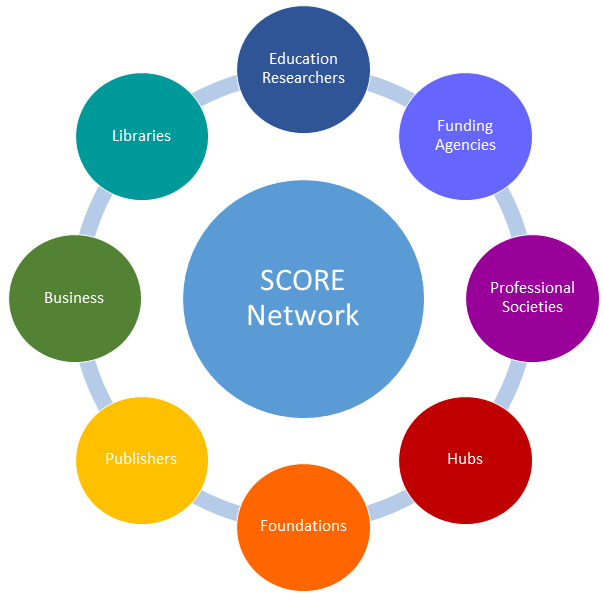Hewlett-funded SCORE Collaborative Pilot Projects - Spotlight on ISKME
Research by the Institute for the Study of Knowledge Management in Education (ISKME) and the Science Resource Education Center (SERC) at Carleton College have found that metadata describing the accessibility of OER are confusing for educators. To address this challenge, ISKME and SERC, with support from a SCORE/Hewlett mini-grant, are partnering to test a preliminary evaluation framework (developed by ISKME and CAST) that educators can use to determine the accessibility of multimedia OER based on auditory, visual, and neurological learner needs. The framework is specifically aimed to accommodate the needs of STEM faculty in particular, who may be looking to ensure the accessibility of equations, detailed diagrams, or other technical components for use in their courses.
The project seeks to answer: 1) Does the framework capture the information needed by STEM faculty in order to select and tag OER to meet their local accessibility requirements in both remote and classroom-based learning environments? If not, what extensions to the framework are needed?; 2) How might the framework be utilized to support faculty-led curation and sharing of accessible STEM OER within their institutions, and what human resource and technical supports are needed for its success?; and 3) How might the framework be utilized to support the sharing and discovery of accessible STEM OER across institutions—within the SCORE Network and beyond?
ISKME and SERC have formed a working group of institution-level accessibility experts, recruited through networking with QUBES, BioQuest, and SCORE members, as well as with ISKME’s current partner, CAST. With guidance from the working group, members of ISKME and SERC have spent the summer building knowledge about the field from existing work by others, including resources, tools, and discussions about the connections between accessibility and UDL, and open educational practices. They have drafted a revised accessibility framework and solicited feedback on the framework from the working group. The project members report that one of the main lessons they are learning is about the shifts in the field over time away from a “deficit” model for accessibility, with the burden on the learner, faculty or other user, to “overcome barriers”, to a model based on the responsibility of providers and faculty to “remove barriers” and offer alternative modes of engaging with learning, through a social justice lens.
The project is currently recruiting STEM faculty to participate in a survey to provide feedback on the revised framework and reflect on its integration into OER or other courseware design or curation workflows. For more information visit the ISKME webpage about the project. If you are interested in participating, please apply by completing this brief survey by Friday, September 28, 2020.
